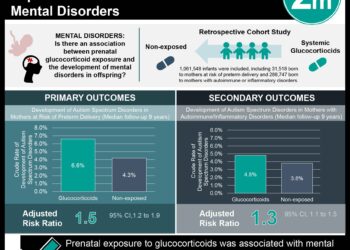COVID-19 outbreak associated with decreased mental health in resident physicians
1. There has been an increase in anxiety, depression, and low mood in resident physicians associated with the onset of the COVID-19 pandemic.
Evidence Rating Level: 2 (Good)
Study Rundown: Since the start of the pandemic, research has focused on understanding the disease and mental health amongst patients, but there are no known reports of physical and psychologic burden associated with the pandemic for physicians dealing with COVID-19. This study examined a group of physicians prior to the start of and during the pandemic in China. A series of surveys were conducted with the participants and the results of the 2019 (prior to COVID-19 outbreak) and 2020 (after the COVID-19 outbreak) cohorts were compared to the 2018 cohort. The results revealed no significant difference between the 2018 and 2019 cohort, however, there was a significant difference present between the 2019 and the 2020 cohort. In other words, the surveys clearly display a decline in mental health after the COVID-19 outbreak. This study is limited as it only includes first year resident physician surveys and thus the results are not generalizable in other physician populations.
Click to read the study in JAMA
Relevant Reading: Factors Associated With Mental Health Outcomes Among Health Care Workers Exposed to Coronavirus Disease 2019
In-Depth [prospective cohort]: This study was conducted in China across 12 hospitals by administering surveys to resident physicians two weeks prior to the start of their training in August 2019 and comparing the results to the prior year. A follow up survey was completed at 3 months (quarter 1) and 6 months (quarter 2). The initial survey consisted of Intern Health Study and the last two surveys consisted of anxiety, depression, and workplace violence assessments (Generalized Anxiety Disorder-7 scale and Patient Health Questionnaire). A mobile app was also used to monitor and report daily mood. A total of 1037 residents were invited, of which 726 participated in this study. Participants were remunerated for participating in the surveys. The survey was analyzed in March 2020 and April 2020 using SAS statistical software. Overall, 53% of those that participated in the study completed both quarters of the study. The results suggested a significance difference between both quarters indicating an increase in mental health symptoms and violence, as well as a decline in mood, associated with the COVID-19 pandemic (β = −0.50 ; 95%CI, −0.80 to −0.20; P = .002).
Image: PD
©2020 2 Minute Medicine, Inc. All rights reserved. No works may be reproduced without expressed written consent from 2 Minute Medicine, Inc. Inquire about licensing here. No article should be construed as medical advice and is not intended as such by the authors or by 2 Minute Medicine, Inc.







